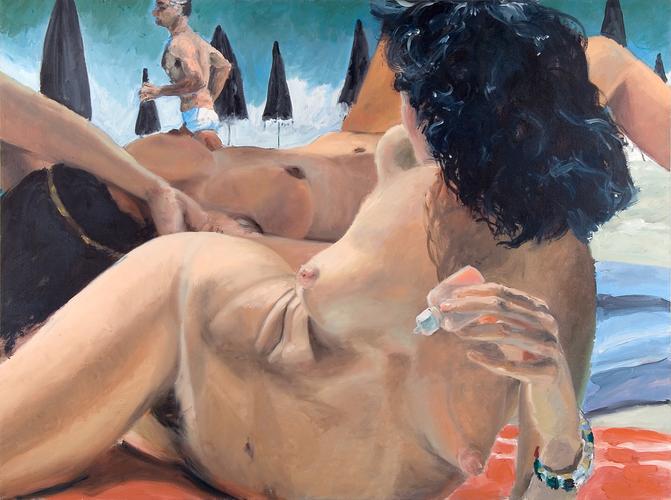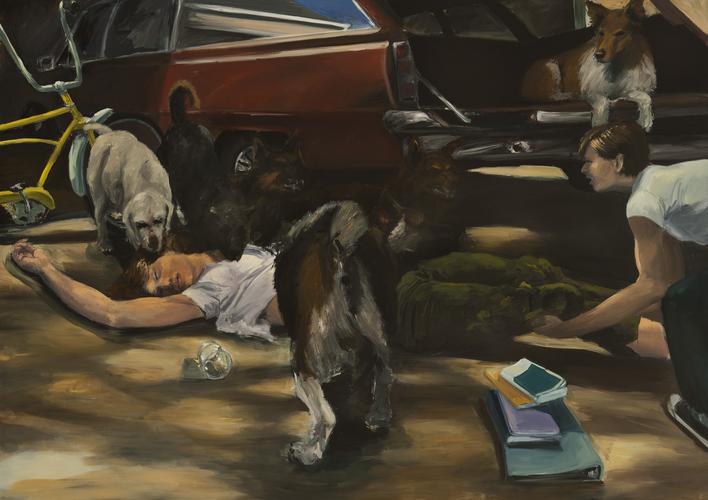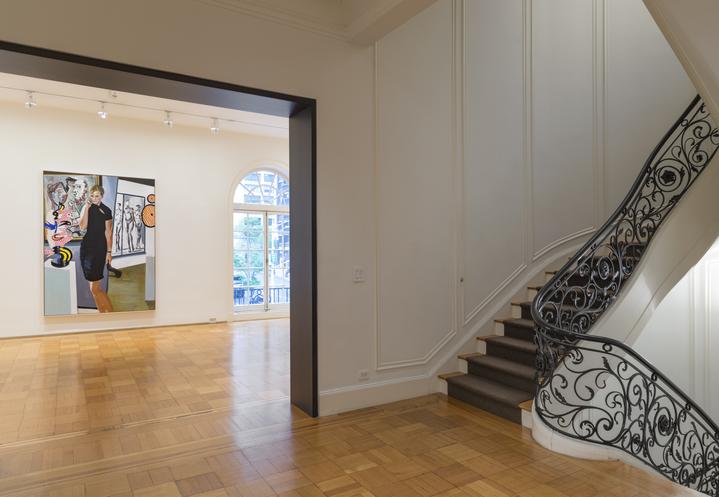Skarstedt is pleased to announce Rift Raft, Eric Fischl’s first presentation of new work at its Upper East Side gallery (20 East 79th Street), on view from Tuesday, May 3 to Saturday, June 25. Using the art fairs as a lens, Fischl further develops his study of human nature by confronting the viewer with the reality and ultimate disconnect between art and the environment in which it is situated.
Instead of the suburban scenes of his past, Fischl focuses on interactions within the opulent arena of art fairs. Both intrigued and appalled by the concept, he began to visit fairs to observe the crowd, taking his camera with him to capture snapshots of the characters that roam the booths. The figures Fischl paints are not portraits. They represent archetypes of the people at fairs: the shrewd dealers in suits, the eccentric art fans, the wearied group sitting by the refreshment area, almost all of them engrossed in their cell phones. Fischl observes: “Same crowd, different clothes. Always the same experience.” Meanwhile, the artworks are overshadowed by the frenzy of buying, selling, and socializing. They join the audience as silent observers of the chaotic art market on display.

Eric Fischl The Day the Shah Ran By, 1982 oil on canvas 36 x 48 inches (91.4 x 121.9 cm.). © Skarstedt Gallery, New York.
The art fair paintings join the lineage of art about art throughout history. In particular, one can draw parallels between Fischl’s scenes and paintings of collector’s cabinets during the Dutch Golden Age, a time of booming economic activity that propelled a proportionately vigorous art market. Offering an exclusive glance inside collections, these paintings were part documentation of inventory, part elaborate narrative to flatter the taste and status of the patron, a theme that resonates today. While Fischl’s paintings appear satirical, they are only partially so. They are essentially tragic comedies in which people’s desires and needs are thwarted by a system incapable of satisfying their deepest cravings. These works are not a “comment” on the art world but an existential condition most clearly articulated by the art world’s irreconcilable conflict between spiritual and commercial values.

Eric Fischl A Woman Possessed, 1981 oil on canvas 68 x 96 inches (172.7 x 243.8 cm.). © Skarstedt Gallery, New York.
In the painting Rift/Raft, Fischl’s series reaches a politically charged climax, as the apathy of the art world elite is juxtaposed with potent imagery of refugees in desperate need. The audience is shocked out of their apathy, being made to realize that these two worlds coexist. Fischl revisits an earlier diptych, A Visit To/A Visit From/The Island (1983), leaving a heavy impact on the viewer with a blunt comparison of the lives of refugees to those living in leisure. Pushing his social commentary a step further, he demonstrates the rift of the art market from the reality many face. Fischl also alludes to Géricault’s The Raft of the Medusa (1819), hand in this tour de force of composition, he commemorates the plight of the refugees in a deeply empathetic way.
This exhibition will be accompanied by a fully illustrated catalogue, featuring an essay by Tim Adams.
Courtesy of Skarstedt Gallery, New York
























